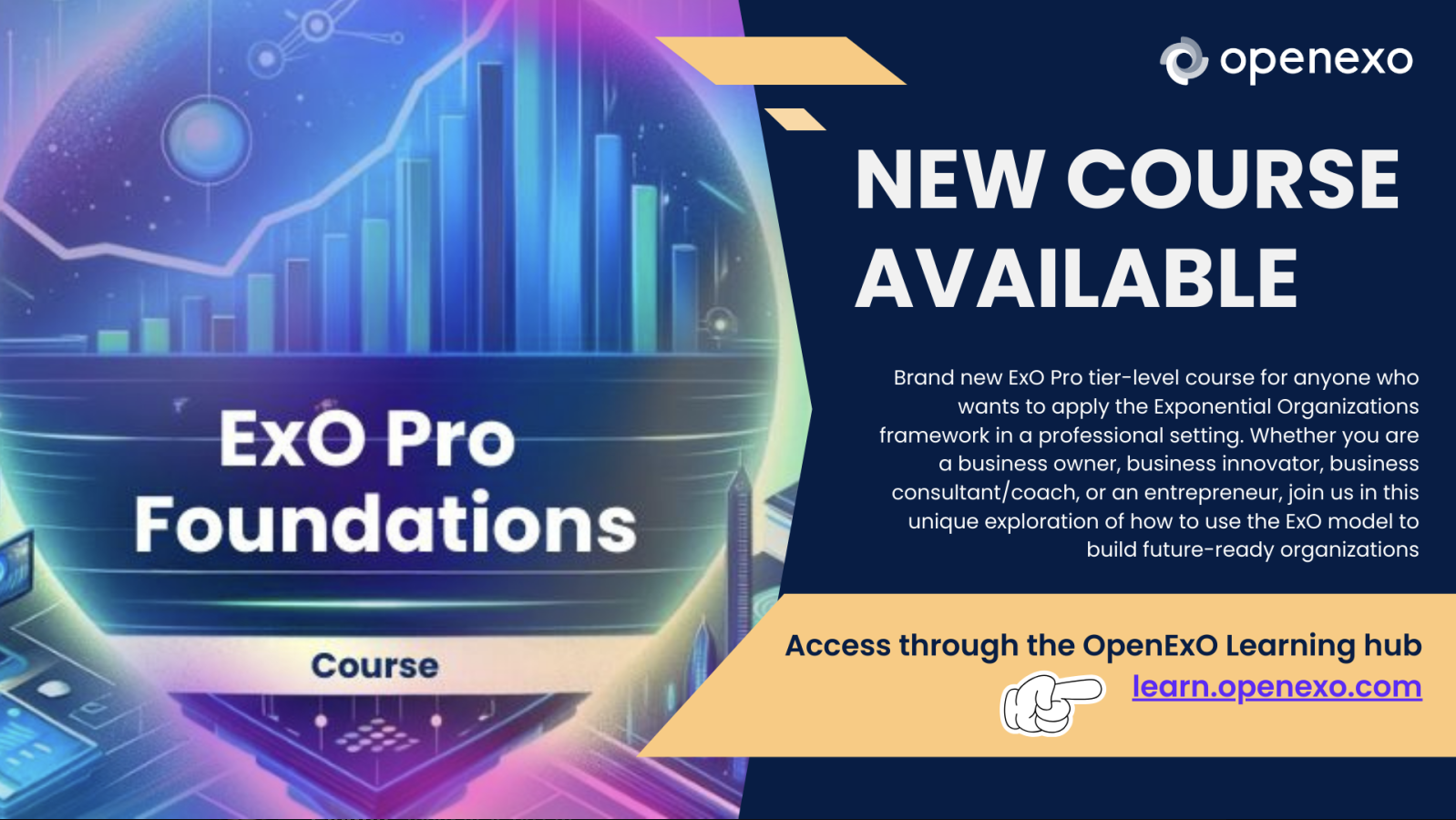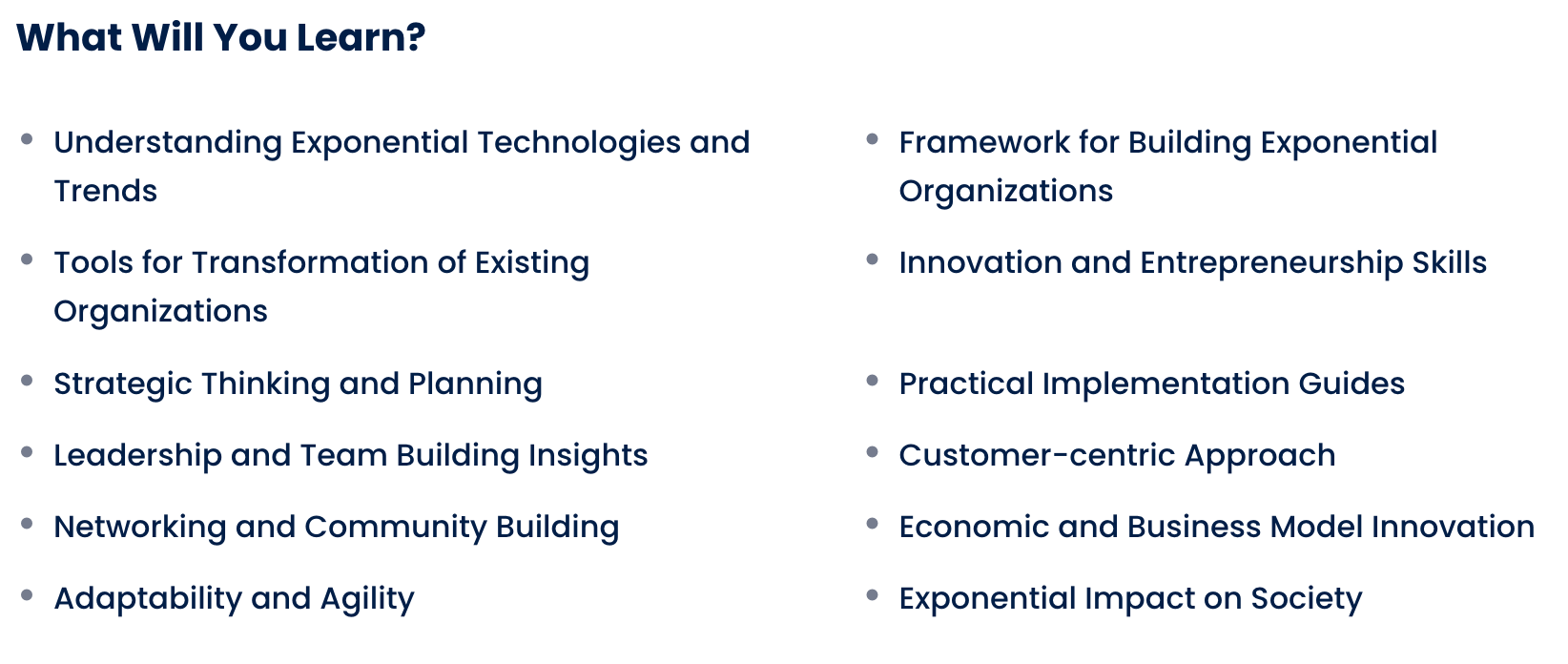
Disruptive Potential: How Exponential Attributes Are Transforming Education #1
Community & Crowd explores how educational institutions and online platforms can harness the power of collaborative content creation, peer learning, and crowdsourcing to foster more engaging, personalized, and evolving educational experiences.
This article is part of a series exploring how exponential attributes - key characteristics of exponential organizations - can catalyze disruptive innovation in the education sector. As technologies rapidly advance and organizational models evolve, these exponential attributes present transformative opportunities to reimagine learning experiences, delivery models, and the core infrastructure of education itself.
From personalized and adaptive learning powered by algorithms to crowdsourced content creation and peer-to-peer knowledge sharing, the exponential attributes have the potential to upend traditional education paradigms. This series takes a deep dive into each attribute, examines real-world use cases, and envisions how educational institutions and edtech companies can harness these capabilities.
The ultimate goal is to spark ideas and inspire educational leaders to embrace an exponential mindset - one that prioritizes massively transformative purposes, leverages internal and external talent on-demand, engages communities through compelling interfaces, and continually experiments to meet the evolving needs of learners.
By the end of this series, readers will gain a comprehensive understanding of how exponential attributes can disrupt the education industry, opening doors to more accessible, personalized, and effective learning for individuals across the globe. The time is ripe to boldly rethink education through an exponential lens.
Staff on Demand
Educational institutions and online learning platforms can take advantage of the gig economy and leverage a global pool of talent "on-demand" instead of relying solely on full-time faculty or instructors. This allows them to rapidly scale and provide specialized expertise and support as needed.
For example, an online university could bring in subject matter experts from around the world to deliver guest lectures, workshops or provide mentorship for specific courses or topics. These experts don't need to be permanently employed but can be contracted for short engagements.
Similarly, online tutoring services can maintain a network of tutors across multiple subjects who can be dynamically matched with students needing assistance based on their availability, expertise, language preferences etc. Students get access to personalized support when they need it without the tutors being full-time employees.
Online learning platforms for K-12 (K-12, a term used in education and educational technology in the United States, Canada and some other countries, is a short form for the publicly supported school grades prior to college. These grades are kindergarten (K) and first through 12th grade) or test preparation could hire teaching assistants or graders on a per-course, per-semester or even per-assignment basis to provide feedback, grade assignments and support the primary instructor. This allows scaling support resources elastically based on demand.
The California-based education technology company Age of Learning utilizes this model with their ABCmouse online curriculum by contracting remote teaching artists, animators and voice talent on an as-needed project basis worldwide.
In essence, the "Staff on Demand" model provides educational organizations access to a larger and more diverse talent pool, specialized expertise when required, flexibility to scale resources up or down, and potential cost savings compared to a traditional full-time faculty model. This exponential attribute enables more personalized, high-quality yet affordable education solutions.
Additional examples:
- VIPKID - VIPKID is an online platform that connects Chinese students with English-speaking teachers for one-on-one virtual English lessons. The platform utilizes a network of freelance teachers to provide personalized learning experiences to K12 students. Link to VIPKID
- Chegg Tutors - Chegg Tutors is a platform that offers on-demand tutoring services for students in various subjects. Educational companies can leverage Chegg Tutors to provide additional support to K12 students through a network of freelance tutors. Link to Chegg Tutors
- Outschool - Outschool is a marketplace for live online classes for K12 students. The platform features a diverse range of subjects taught by freelance educators, allowing educational companies to access specialized instructors for their LMS initiatives. Link to Outschool
- Skillshare - Skillshare is an online learning platform that offers courses on creative skills, design, and entrepreneurship. Educational companies can collaborate with freelance instructors on Skillshare to develop engaging content for their LMS and K12 programs. Link to Skillshare
Community & Crowd
Educational institutions and online learning platforms can tap into the power of communities and crowds throughout the entire lifecycle of content creation, delivery, and continuous improvement. From ideation to co-creation to peer learning and feedback loops, engaging the crowd enables a more collaborative, personalized, and evolving educational experience.
Content co-creation involves opening up the development process to students, educators, subject matter experts, and the wider community. For example, platforms like Wikiversity allow anyone to contribute and edit educational content collaboratively. Another example is edX's Content Consortium, where universities work together to co-create and share online courses. This collaborative approach fosters the creation of video lectures, case studies, practice exercises, and other materials that reflect diverse perspectives and real-world relevance. Crowdsourcing platforms like Amazon Mechanical Turk can be leveraged to outsource specific content creation tasks, such as video editing, transcriptions, and translations, to a global pool of talent, ensuring efficiency and scalability.
Once the content is created, online communities facilitate peer learning, enabling students to discuss concepts, share notes, work on group projects, and learn from each other's experiences. Platforms like Piazza foster subject-specific forums where students can ask and answer questions, fostering a supportive learning community.
Peer assessment models allow students to evaluate and provide feedback on each other's work, as seen in initiatives like Coursera's Peer Assessment feature, fostering a culture of constructive critique and continuous improvement. Learners can take on the role of "student experts," leading study groups or topical discussions within the community, further reinforcing their understanding and developing leadership skills, as exemplified by StudyRoom's virtual study groups.
Ratings and reviews from students, parents, and the community serve as invaluable sources of feedback, guiding decision-making and identifying areas for improvement or highly valuable components.
For instance, EdSurge's School Experience Review platform allows community members to rate and review educational products and services, informing purchasing decisions and product enhancements. Community-driven ratings can also inform course selection and instructor evaluations, as seen on platforms like Udemy and Coursera.
Moreover, crowdsourcing ideas from the collective intelligence of the community can drive innovation in course offerings, learning experiences, and educational technologies. The MIT Innovation Initiative, for example, has run challenges inviting the crowd to propose ideas for improving educational practices and technologies. Similarly, the UNESCO-backed Open Education Challenge incentivized the crowd to contribute innovative solutions addressing key problems in education, fostering a culture of continuous improvement and adaptation.
By effectively leveraging communities and crowds throughout the educational process, institutions and platforms can benefit from diverse perspectives, collective knowledge, mutual support systems, and scalable co-creation models, ultimately enhancing the quality, relevance, and engagement of educational offerings.
Additional examples:
- Khan Academy - Khan Academy is a non-profit educational platform that offers free online courses and resources for students of all ages. The platform relies on a community of volunteer educators and experts to create and curate educational content, making it accessible to learners around the world. Link to Khan Academy
- Duolingo - Duolingo is a language learning platform that uses crowdsourced content to provide interactive lessons and exercises for users. The platform’s community of contributors helps create and improve language courses, making it a collaborative learning experience for students. Link to Duolingo
- Coursera - Coursera is an online learning platform that partners with universities and organizations to offer courses on a wide range of subjects. The platform’s community of instructors and learners interact through forums, discussions, and peer assessments, creating a collaborative learning environment. Link to Coursera
- TED-Ed - TED-Ed is an educational platform that provides free video lessons and resources for educators and students. The platform’s community of educators, animators, and experts collaborate to create engaging educational content, fostering a culture of continuous learning and knowledge sharing. Link to TED-Ed


Enroll in the ExO Pro Foundations Course today.
ExO Insight Newsletter
Join the newsletter to receive the latest updates in your inbox.








